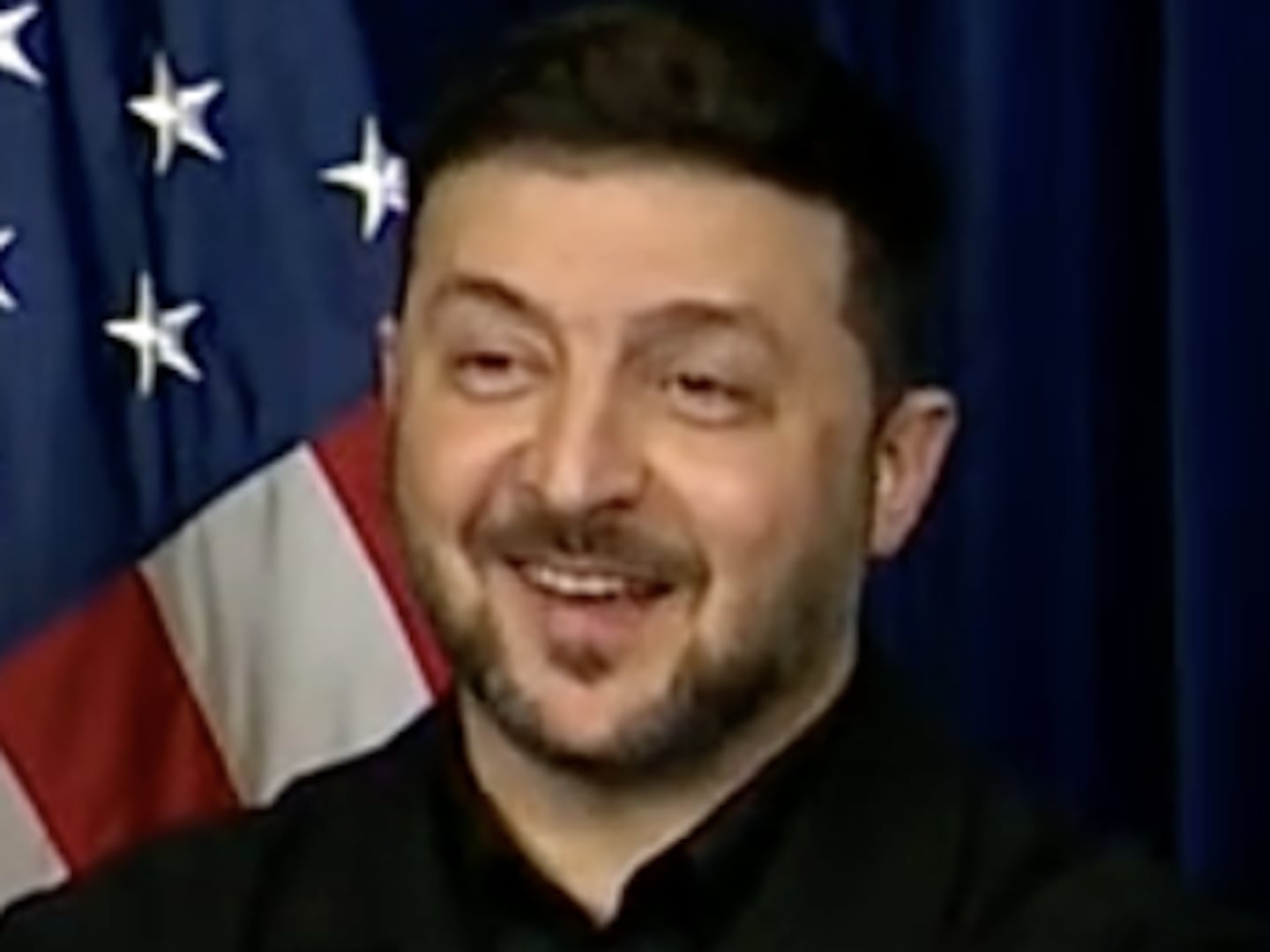People used to stop Pamela Adlon and her three daughters and tell them they should star in their own reality show. “I would be like, ‘That’s OK…’” the actress laughs. But while Keeping Up With the Adlons never quite had a chance, we do have the next best thing. Actually, we have Better Things.
In a fall TV season that’s already making a splash for championing diverse, distinctive voices in an array of projects that they created, wrote, and starred in—FX’s Atlanta from Donald Glover or HBO’s upcoming Insecure from Issa Rae as just two examples—Better Things stands out.
The show is yes, created by, written by, and starring Adlon, whose voice in some ways you already know. She’s been Louis C.K.’s creative partner for the better part of a decade, first with HBO’s short-lived Lucky Louie and more prominently with FX’s Louie, on which she’s served as writer, producer, and Emmy-nominated guest star.
And speaking of voices, Adlon, whose decades-long résumé includes a memorable run on Showtime’s Californication, is an accomplished voice actress. You may have heard her on King of the Hill, on which she voiced Bobby, or the animated series Recess, on which she gave voice to Spinelli.
But never has her voice been as loud—and, as it turns out, vital—as it is on Better Things, her loosely autobiographical, deeply personal new FX series that premieres Thursday night. “I’m so frickin’ excited for people to see it I’m shitting in my pants,” she informs me, over the phone the week before the show was set to premiere.
“My show, every single aspect of it was important to me,” she says. “I handpicked every single song, every single piece of clothing, every extra. I wrote out the title credits by hand.” At one point in the first episode, she’s even wearing her father’s old sweater. In fact, most of her character’s wardrobe are Adlon’s own clothes.
On Better Things, Adlon plays Sam Fox, the single mother of three daughters modeled after her own reality-show-ready experience raising three girls in Los Angeles following a divorce. Sam is also, like Adlon, a working actress—on shows both raunchy, a la Californication, and animated for children, like her role on Recess.
In a memorable early scene in the show’s pilot, Sam is in an audition room with UnREAL’s Constance Zimmer waiting to read for a casting director, but ditches the audition when she sees Modern Family’s Julie Bowen walk out of the room. Moments later, Sam is in the car with her teenage daughter, Max, who in a moment of misguided candor, asks her mom if she could score her some weed.
“You’re my mom! I want you to know if I have sex or get high!” Max yells. “Augh!” Sam shouts back, aghast. “No! Hide things from me, please!”
It’s a refreshingly blunt take on single motherhood without sacrificing the warmth of parental love, portraying the dance between selfishness and selflessness that’s at the heart of being a parent—especially one weathering the hormonal fireworks of a household of four women at different ages.
Some critics of Louie, and maybe even some of the show’s admirers, have often wondered how “forgivable” its complicated lead character’s actions and mindset would be if it had been a woman instead of a man. In some respects, Better Things answers that question. But the show is so intensely in Adlon’s voice that it would do it a disservice to reductively offer it up as a female take on Louie.
“I try to give everybody something a little bit different,” Adlon says when I ask if she’s gotten used to the incessant inquiries about how much she and her Better Things character Sam are alike.
She didn’t so much give me my own tidbit as she actually lived out the reality of her answer. She apologizes profusely at one point as she breaks from “talking to a nice man from The Daily Beast” to plead with her daughter, Alex, to help her carry contents from her car inside.
Later, an intense screech interrupts one of my questions as she, out of breath, scolds off the phone, “You scared the shit out of me!” After a beat, she returns to our conversation, “I’m sorry. Did you hear my daughter scare me when I walked into the house? That scared me to death.”
Is Better Things autobiography? Well, it sure is close.
“You know, it’s me,” she says. “I’m a mom of three girls. I have an English mom who lives next door to me [Played by Celia Imrie on the show]. That’s pretty much my life. I’m an actor. I’ve done dirty stuff on camera. I do kids’ stuff for animation. I’m just like a working guy, you know? But then the stories that I’m telling are things that are just everyday life things and things that people are going through.”
There’s the sweetness of motherhood. One tender scene has Sam fruitlessly trying to resist her youngest daughter who is begging to snuggle with her in bed. “I swear to god if your little baby hands touch me I’ll fall asleep and I’ll be in a lot of trouble,” she groans. There’s the aforementioned awkwardness of dealing with a teen daughter who suddenly wants to talk about drugs and sex.
Then there are the things that are unique to Adlon’s life as an actress and mother, like when Sam tries to convince the director of a show she’s working on to dial down “the part where my legs are up in the air and that guy is eating my pussy and his son walks in and sees us,” for the sole purpose of trying to make things less uncomfortable for her daughters, whose classmates might see the scene on TV.
It’s based on a real experience Adlon had, having to warn her children about certain aspects of her role on Californication, in which she played a character at one point nicknamed “Coke Smurf” and who boasted a very healthy sexual appetite.
As specific a take on motherhood as this may be, the universality is inescapable—and certainly the bluntness recalls Louie—particularly in Better Things’ first scene. Sam is sitting on a bench at the mall scrolling through her phone, seemingly ignoring her youngest daughter who is loudly crying as another woman on the bench glares at her judgingly.
“Hi. Do you wanna buy her the earrings? Because that’s why she’s crying,” Sam says, confronting the woman and explaining that it’s the same pair of earrings her daughter already has at home, but that she nonsensically wants another pair right now. When the confrontation is over, Sam shrugs, and asks her still-crying daughter if she wants to get a hot dog on a stick from the food court.“It’s a perfect introduction,” Adlon laughs, recalling the scene.
It was actually Louis C.K. who had suggested—years ago—to FX president John Landgraf that Adlon create and star in her own show, after Landgraf had told him that he was looking to add a “woman show” to the schedule. At the time the thought of it practically gave Adlon hives. She was co-starring on Californication, working on Louie, and raising her three daughters as a single parent.
But it wasn’t just the workload that Adlon couldn’t wrap her head around. It was the very idea of a starring in a show itself, especially one that would revolve around her stories, her point of view.
“I’m much more of a caretaker of other people’s stories and witness of other people’s stories than that for me. It was easy for me to create for other people,” she says, marveling at the irony that she could write for Louis C.K. for what seemed like forever, but had a block when it came to writing for herself.
But when the levee broke, the story ideas came like a flood. “That’s just years and years of compiling memories and thoughts,” she says.
When describing the feel of her show—like Louie, not heightened to the point of sitcom or traditional drama—she says things you’re used to hearing from creators of TV shows like this: a potentially inauthentic scene “throws up red flags” for her, she wants the show to seem like an independent film or maybe even a documentary, that feeling “real” is massively important to her. And, true, there’s an aching, well, realness that makes the show so watchable, and in turn unusual.
But then she says something perfect, something I’ve never heard from a creator before and something that perfectly encapsulates the appeal of Better Things, this unshakable familiarity and intimacy that you feel while watching it. “I wanted to transport people into a reality, not out of reality.”






